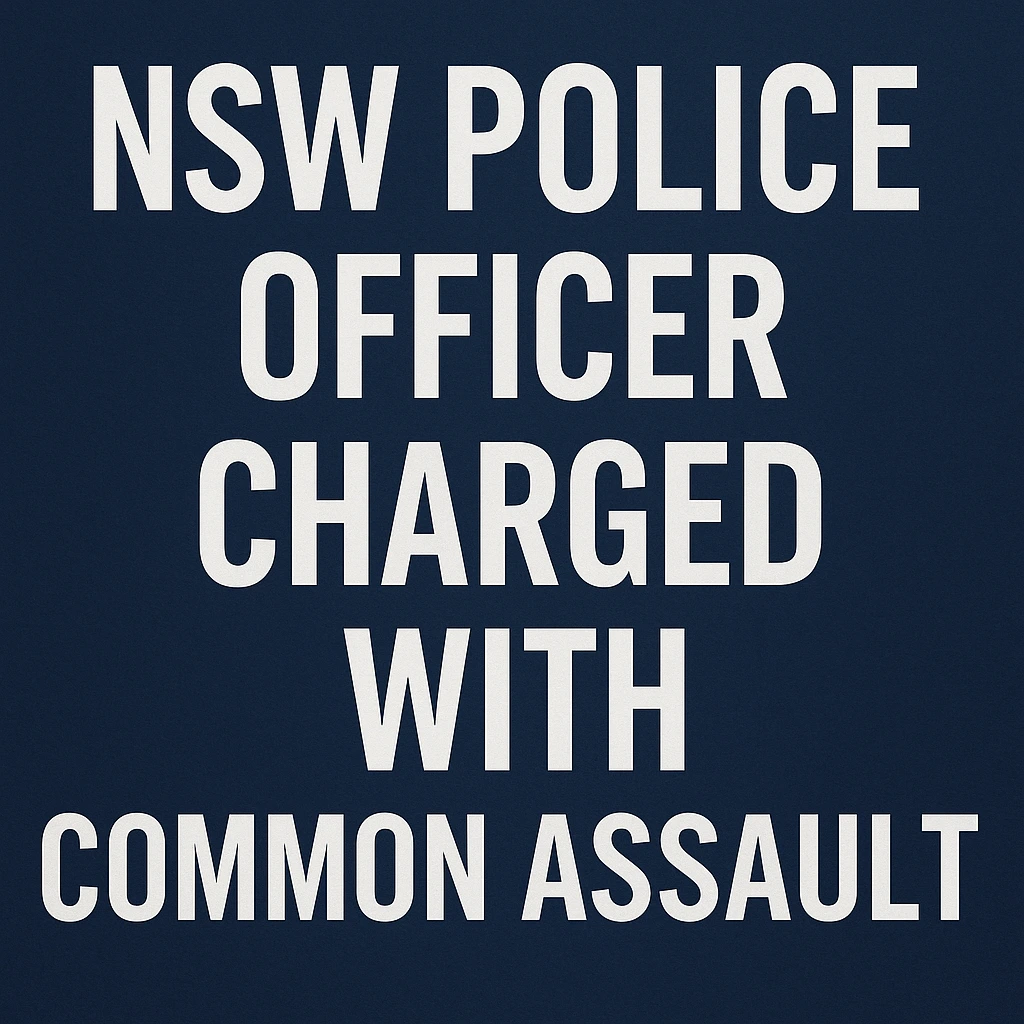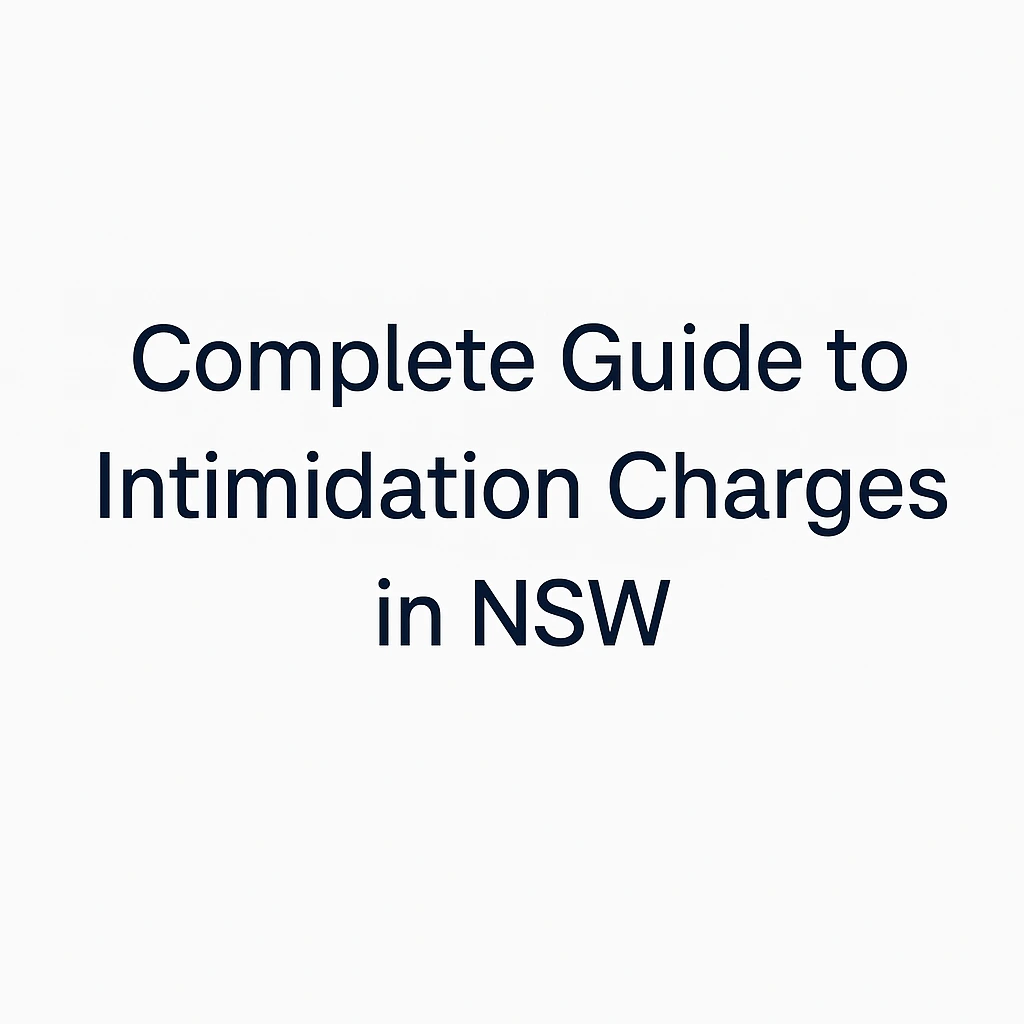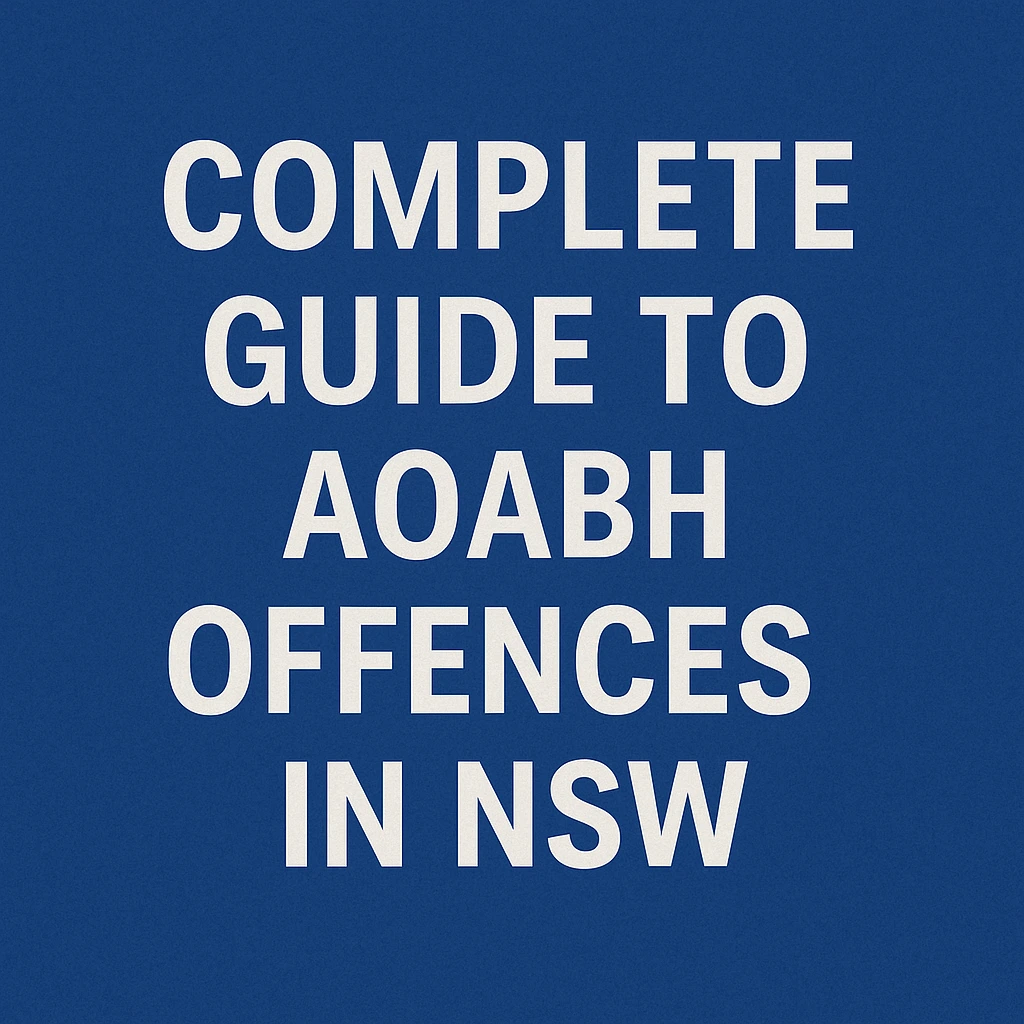Licence Suspension Appeals in NSW
Losing your driver’s licence in NSW can have a serious impact on your work, family, and freedom of movement. Many people in this situation wonder how to appeal license suspension NSW notices and what the chances of success are. In NSW, you can appeal certain licence suspensions – but the process is formal and time-sensitive. This comprehensive guide explains everything you need to know about a license suspension appeal, from eligibility and grounds to the appeal process and tips for a successful outcome. By understanding your options for an appeal licence suspension, you can take informed steps to try to save your licence.
Understanding Licence Suspensions in NSW
A licence suspension means you are temporarily barred from driving for a specified period. Suspensions can result from serious traffic offences, accumulation of demerit points, or can be on-the-spot. In NSW, not all suspensions can be appealed – but many can. It’s important to know the difference so you don’t waste time pursuing a suspension appeal that isn’t permitted.
Appealable Suspensions
You generally have the right to appeal the following types of licence suspensions to the Local Court of NSW:
- Speeding Offences: Suspensions for exceeding the speed limit by more than 30 km/h or more than 45 km/h.
- Low-Range Drink Driving (PCA): Suspensions for driving with a low, special, or novice range prescribed concentration of alcohol.
- Drug Driving: Suspensions for driving with an illicit drug present in your oral fluid, blood, or urine.
- Immediate Police Suspensions: Appealing license suspension NSW for any on the spot situation where police immediately suspend your licence.
- Provisional Licence Demerit Points: Suspensions for accumulating too many demerit points as a learner (L-plater) or provisional (P-plater) driver.
If you fall into one of the above categories, you are eligible to appeal license suspension NSW to the Local Court. Importantly, the letter or notice you receive from Transport for NSW or police will usually state if you have a right to appeal. Always read your suspension notice carefully.
Non-Appealable Suspensions: Some suspensions cannot be appealed to court. Notably, if you are a fully licensed driver (unrestricted licence) suspended purely for demerit points, you cannot appeal that suspension in NSW. Instead, unrestricted drivers are given the option to elect a 12-month “good behaviour” period before the suspension takes effect. Similarly, if you were already on a good behaviour period and then breached it, triggering a suspension, you have no right to appeal that resulting suspension. In those cases, the suspension must be served. Always check whether your licence appeals NSW options apply to your situation.
Grounds for Appealing a Licence Suspension
When preparing a licence appeal, you should have clear reasons to present to the court about why the suspension should be overturned or reduced. The court will not simply undo a suspension because it’s inconvenient – you need to show specific grounds or exceptional circumstances. Common grounds for appealing licence suspension decisions may include:
- Hardship: Demonstrating that the suspension causes exceptional hardship to you or your dependents. For example, if you need a licence for your job or to care for family members, losing it would create undue hardship beyond the ordinary inconvenience most drivers face. The court may consider evidence like an employer’s letter explaining that you’ll likely lose your job without a licence, or medical evidence showing a family member relies on you for transport.
- Good Character and Driving Record: Showing the Magistrate that you are a responsible person who made an isolated mistake. Evidence might include character references attesting to your good driving history and community involvement. A relatively clean driving record (few or no prior offences) can support advancing such a ground. The aim is to convince the court that you deserve leniency on the licence appeals decision.
- Changed Circumstances or Exceptional Reasons: In rare cases, there may be extraordinary reasons surrounding the offence or your personal situation. For example, if you were speeding due to a genuine emergency or you have made significant rehabilitative efforts since the offence (such as completing a traffic offender program), the court might take that into account. Remember that for on-the-spot police suspensions, exceptional circumstances are required (more on this below). Hardship alone, such as needing your licence for work, is usually not enough for those immediate suspensions.
It’s important to note that an appeal of a licence suspension is not the place to argue you were innocent of the offence. If you believe you did not commit the offence leading to the suspension, you must instead challenge the charge or fine itself in court (for example, elect to go to court for a traffic infringement). The licence suspension appeal assumes the offence occurred and focuses only on the appeal license suspension decision (the penalty) rather than guilt or innocence.
How to Appeal a Licence Suspension in NSW
If you decide to appeal, acting quickly is critical. The process for how to appeal license suspension decisions in NSW involves strict deadlines and several steps:
- File a Notice of Appeal: To commence the license appeal, you must lodge an appeal with the Local Court. This is done online via the NSW Online Registry system. When lodging, you will need details from your suspension letter (such as the date of issue and your licence number) and you’ll have to pay a filing fee. The time limit for filing depends on the type of suspension:
- Police Suspensions: If police suspended your licence on the spot, you must file your appeal within 28 days of the date you were suspended. Do not miss this 28-day window. If you file even one day late, the court cannot hear your case by law.
- Transport for NSW (TfNSW) Suspensions: If you received a notice from Transport for NSW (formerly RMS) of an upcoming licence suspension (for things like demerit points or a camera-detected speeding offence), you must lodge your appeal before the suspension period is due to begin. In practice, this means you should file as soon as possible after getting the notice – at least by the day before the suspension’s start date. Once the suspension is in effect, it’s too late to appeal it.
When filing your appeal, make sure to double-check the appeal licence suspension NSW form is filled out correctly. After filing, the court will give you a mention or hearing date.
- Pay the Filing Fee: The Local Court requires a fee to register your appeal. This fee must be paid for your appeal to be officially lodged. If you file online, you’ll pay by card during the process. If you cannot afford the fee, you can apply for a fee waiver.
- Get Your Court Date and Stay of Suspension: Once your appeal is filed and processed, the Local Court will set a date to hear your case. This is usually a few weeks to a couple of months later, depending on the court’s schedule. If your suspension came from Transport for NSW, filing the appeal will stay (pause) the suspension until the court decides the appeal. In other words, you can continue driving pending the outcome of the appeal, as long as you have lodged the appeal on time. Always confirm with Transport for NSW or Service NSW that your licence is recorded as valid during this period before driving again.
For police on-the-spot suspensions, however, there is no automatic stay. Even after you file the appeal, your licence remains suspended until the appeal is heard. You are not allowed to drive while waiting for court in that scenario – doing so would be driving while suspended, a serious offence. Essentially, if you’ve been suspended immediately by police, you should plan not to drive at all until the appeal is decided.
- Prepare Your Case: In the weeks before the appeal hearing, take time to gather evidence and plan what you will say in court. This preparation is key to improving your odds of a successful licence suspension appeal. Helpful steps include:
- Obtain character references (two or three is common) from employers, colleagues, or community members who can vouch for your character and need for a licence. The writers should mention they know about your suspension and explain why they believe you are responsible and need your licence (e.g. for work, family).
- Write an apology letter if appropriate, accepting responsibility for the offence that led to the suspension (if you did commit it) and showing remorse. While the appeal is not to decide guilt, demonstrating that you understand the seriousness of the offence can show the court you’ve learned your lesson.
- Gather any documents that support your need for a licence. For example, a letter from your employer if your job is in jeopardy if you can’t drive, or a medical certificate explaining your family commitments. If lack of public transport is a factor, you can print out schedules or maps to show there are no viable alternatives for you.
- Be mindful of your behaviour while waiting for the appeal. Do not drive if you’re not allowed – getting caught driving on a suspended licence will not only result in additional charges and penalties, but it will severely hurt your credibility in the appeal.
- Consider Legal Representation: Although not mandatory, having an experienced Blacktown Criminal Lawyer represent you at the appeal can be highly beneficial. A lawyer who knows how to appeal a license suspension in NSW will understand what arguments would assist the court. They can help draft your explanation and make sure all relevant points (such as your personal circumstances and any legal issues with the suspension) are clearly presented. While this guide empowers you with knowledge, a licence appeals specialist can tailor advice to your exact case. Remember, you only get one shot at the appeal – it may be wise to invest in professional help if you’re really depending on a positive outcome.
What to Expect at the Licence Suspension Appeal Hearing
On your court date, you will have the opportunity to explain to a Local Court Magistrate why your suspension should be lifted or altered. It’s normal to feel nervous, but knowing the format can help. Here’s what happens when appealing license suspension NSW cases in court:
- Court Appearance: Licence suspension appeals are heard in the Local Court, usually in an open courtroom along with other cases. When your case is called, you (or your lawyer) will go to the bar table. The Magistrate will be provided with have a copy of your appeal application and driving record. A representative of the police or Transport for NSW may provide further information or oppose your appeal, depending on the type of suspension.
- Your Submissions: You (or your solicitor) will be asked to explain why you are appealing and what outcome you seek. This is where you present the grounds for your appeal licence suspension and any evidence. Speak respectfully and clearly. If you have documents (references, letters, etc.), hand them up to the Magistrate (with a copy to the other side). Focus on key points like your need for a licence, your remorse for the offence, and the impact on your life. Essentially, you’re answering the question of why the license suspension appeal should be granted.
- What the Magistrate Considers: The Magistrate will weigh factors such as public safety, your driving history, and personal circumstances. For Transport for NSW licence appeals, the court has broad discretion. It can take into account hardships and any compelling reasons you present. For immediate police suspensions, the law is much stricter: Under Section 268(5) of the Road Transport Act 2013 (NSW), the Local Court is not to set aside an immediate suspension unless satisfied there are “exceptional circumstances” justifying it. Moreover, the court is not allowed to consider the details of the alleged offence itself in these appeals. In practical terms, this means if you’re appealing an on-the-spot police suspension, you must show something truly unusual about your situation beyond the ordinary need for a licence. The Magistrate will not simply say “you’ve learned your lesson” or debate whether the offence was really serious – by law, they must leave the offence facts alone and only look at exceptional circumstances. This is a high bar, so be prepared that such appeals are difficult to win.
- Possible Outcomes: After hearing from you and reviewing any evidence, the Magistrate will deliver a decision. In most cases, the decision is given immediately on the spot. The Local Court has several options:
- Allow the Appeal (Quash the Suspension): This means the suspension is set aside and you regain your licence or avoid losing it. In any case, an allowed appeal usually lets you continue driving, possibly under certain terms. This is, of course, the goal of a successful licence suspension appeal.
- Dismiss the Appeal (Uphold the Suspension): If the court denies your appeal, the suspension stays in force. You will have to serve out the remaining suspension period. The Magistrate might express sympathy but still conclude that legal criteria weren’t met. If your appeal is dismissed, there is no further appeal in the vast majority of cases – the Local Court’s decision is final.
- Vary the Suspension: The court could decide on a middle ground. For instance, if you appealed a 3-month suspension, the Magistrate might reduce it to a shorter duration that they consider more appropriate. Varying is effectively a partial win – you still face a suspension but not as severe as originally imposed.
After the decision, be sure you understand it. If your appeal is allowed, ask the Magistrate (or your lawyer) when you can resume driving. If the appeal is denied, note the date your suspension will end so you do not drive before that.
Tips for a Successful Suspension Appeal
Achieving a positive outcome in a licence appeal is challenging but not impossible. Here are some tips to improve your chances in an appeal licence suspension NSW hearing:
- Prepare Thoroughly: Preparation is key to a successful licence suspension appeal. Don’t walk into court unprepared. Compile all supporting documents well in advance and practice what you will say. If you’re representing yourself, even writing a short summary to read to the Magistrate can help ensure you cover all points clearly and concisely.
- Show Genuine Remorse and Insight: Acknowledging your mistake can go a long way. For example, mention that you’ve learned from the experience, completed a driver education or Traffic Offender Program (if applicable), or taken steps to ensure it won’t happen again. Courts respond positively to drivers who take responsibility for their actions. Simply saying “it’s not fair” without owning up (when you did commit the offence) will not be persuasive.
- Emphasize Public Safety Compliance: The court’s primary concern is road safety. Explain how you will remain a safe driver if allowed to keep your licence. Perhaps arranged alternate plans to avoid risky situations. Demonstrating that letting you drive will not endanger others can address the Magistrate’s safety concerns.
- Provide Evidence of Hardship: Don’t just say you’ll suffer hardship – prove it. If you claim you’ll lose your job, bring a letter from your employer. If you have a medical condition or a dependent who needs you, bring medical letters or a statutory declaration outlining your care duties. Concrete evidence makes your hardship claim more credible. Also be ready to explain why alternate transport (public transport, taxis, carpooling) cannot reasonably solve your problem.
- Maintain Professionalism in Court: Little things matter. Dress neatly for court, arrive on time (or early), and address the Magistrate as “Your Honour.” Stay calm and respectful, even if you feel emotional. On the other hand, if you come off as reckless or entitled, your licence appeals argument may carry less weight.
- Consider Legal Advice: As mentioned, a lawyer can greatly assist with filing your appeal and advocacy. Even if you cannot afford a lawyer for full representation, you might seek an initial consultation to get advice on the strength of your case. Legal Aid NSW or community legal centres can sometimes provide guidance for licence appeals. There may also be duty lawyers at court on the day who can give last-minute advice. Getting insight from someone experienced with appeal licence suspension cases can help you avoid common pitfalls.
Above all, be honest and upfront with the court. If you have prior driving offences, don’t try to hide them – the Magistrate will see your driving record anyway. Acknowledge any past issues but stress what you’ve done to improve. Emphasise how important your licence is to you and that you don’t take driving for granted.
Contact AMA Legal for Help with Licence Appeals
Facing a licence suspension in NSW can be overwhelming, but you don’t have to handle it alone. If you need advice on how to appeal a license suspension or representation in court, contact AMA Legal. We understand the nuances of licence appeals NSW and have a track record of assisting drivers in appealing licence suspension.





